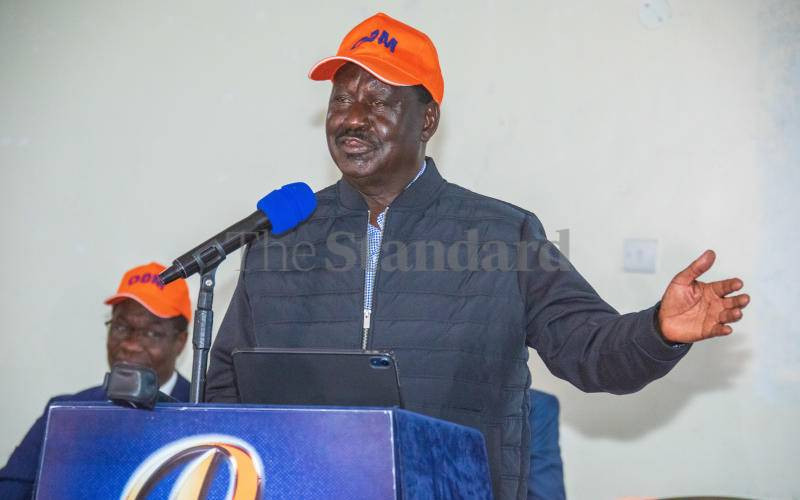×
The Standard e-Paper
Smart Minds Choose Us

Azimio leader Raila Odinga has challenged President William Ruto's administration to prove that the government-to-government oil deal is not a scam.
Speaking on Friday during an ODM Parliamentary Group/ leaders meeting in Nairobi, Raila poked holes into the deal and castigated MPs allied to the ruling Kenya Kwanza Alliance for politicising the matter.